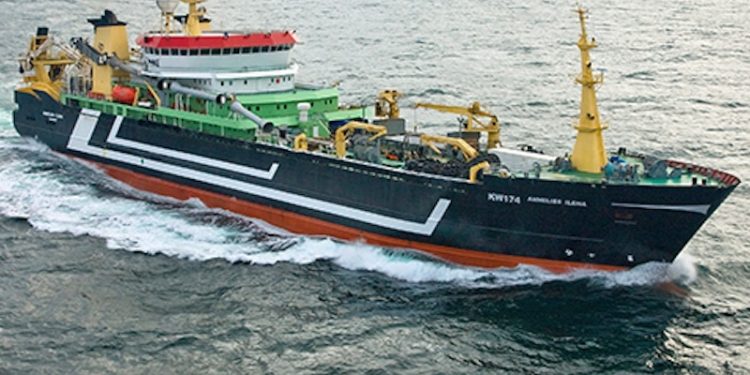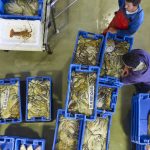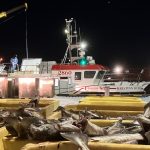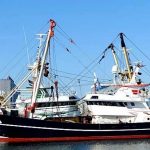The European Parliament in its plenary session in Brussels voted in favour of the new proposal for a regulation on the sustainable management of external fishing fleets (COM(2015)636). The whole EU fishing industry is deeply concerned with one of the articles adopted since it could put out of business environmentally and socially responsible fishing companies on the basis of a single mistake.
According to Europêche, which represents European fishermen’s organisation, the regulation offers an excellent opportunity to review the existing regulation, in order to promote simplification, increase transparency, improve governance, better monitoring and enforcement of rules, while ensuring its sustainability.
‘The whole EU fishing industry fully endorse these objectives and stress the need to strike the right balance between the sustainable management of fishing activities outside Union waters and the need for solid and speedy administrative procedures,’ Europêche states.
The eligibility criterion established in Article 5.1.d, however, states that the operator and the fishing vessel can only apply for a fishing authorisation if they have not been subject to a sanction for a serious infringement during the twelve previous months. The EP has slightly restricted the scope of the article to serious infringements committed by fishing vessels and the master of the fishing vessel, which in view of the sector is far from being a viable solution.
Europêche, in line with the opinion of the Council of the EU and the European Economic Social Committee, highlights that this provision sets a double penalty system, which is disproportionate, since the vessel and the skipper would be subject not only to the penalties provided for in the Control1 and IUU2 Regulations, but also to the non-eligibility to obtain authorisation for twelve months.
‘The EU long-distance fleet has been playing a key role in creating jobs within and outside the Union and supplying fish to Union and local markets,’ said Europêche President Javier Garat.
‘They are a vital part of the EU fishing fleet which are highly monitored and controlled. More than 700 large vessels and 10,000 direct jobs are now unnecessarily put under threat since a single mislabeling or a box miscount could be considered as a serious infringement by Member States authorities. The cessation of fishing activities for a twelve month period would not only affect the fishing industry but other related industries and services. Fishermen feel frustrated since all their efforts to be at the global forefront on sustainability and best practices are once again disregarded by EU institutions,’ he said and commented that it should be remembered that fishermen can and are already heavily penalised for any serious infringements they may commit under these two core Regulations to deter illegal fishing.
‘For instance, the Control Regulation lays down a points system for serious infringements which could lead to the permanent withdrawal of the fishing licence. The IUU Regulation establishes dissuasive penalties such as the immobilisation of the fishing vessel and the suspension or withdrawal of authorisation to fish. Against this scenario, this new rule would be applicable on top of these, establishing an extra sanction regardless of the nature or gravity of the infringement.
‘The problem becomes bigger due to the lack of homogeneity on the Control Regulations of the different Member States, as identified by the EP Fisheries committee last semester, which could lead to extremely different penalties for the same infringement only based on the flag of the vessel in question. The EU must ensure that all its citizens enjoy the same rights and obligations, rather than exacerbate the differences among them,’ he said.
‘This article infringes the principle of non-discrimination, since the same infringements do not incur the same penalties within and outside EU waters. For the same infringements, those fishing outside the EU would have an additional penalty such as non-eligibility to obtain a fishing authorisation for twelve months. This would mean a double standard for similar infringements.’
According to Europêche, this rule would expose fishing vessels operating in third country waters to the control systems of these countries without any prior democratic validation of these systems in many cases.
The fishing sector expects that the EU Institutions in the upcoming trilogue negotiations reverse the current situation and reach a balanced political compromise on this regrettable issue.









